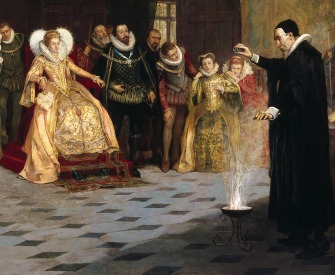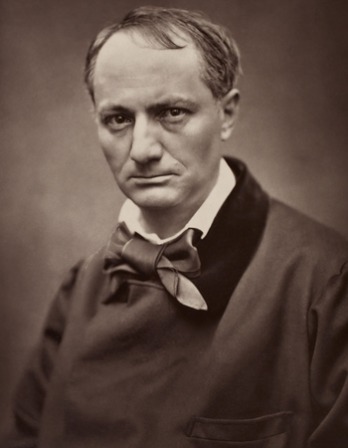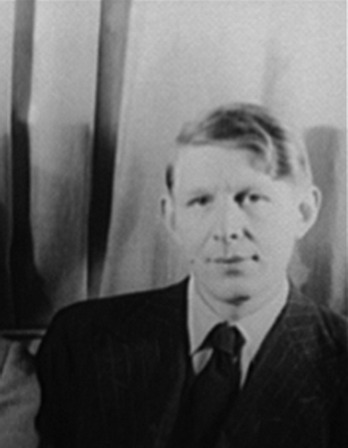The rain set early in tonight,
the sullen wind was soon awake,
It tore the elm tops down for spite,
And did its worst to vex the lake:
I listened with heart fit to break.
When glided in Porphyria; straight
She shut the cold out and the storm,
And kneeled and made the cheerless grate
Blaze up, and all the cottage warm;
Which done, she rose, and from her form
Withdrew the dripping cloak and shawl,
And laid her soiled gloves by, untied
Her hat and let the damp hair fall,
And, last, she sat down by my side
And called me. When no voice replied,
She put my arm about her waist,
And made her smooth white shoulder bare,
And all her yellow hair displaced,
And, stooping, made my cheek lie there,
And spread, over all, her yellow hair,
Murmuring how she loved me—she
Too weak, for all her heart’s endeavor,
To set its struggling passion free
From pride, and vainer ties dissever,
And give herself to me forever.
But passion sometimes would prevail,
Nor could tonight’s gay feast restrain
A sudden thought of one so pale
For love of her, and all in vain:
So, she was come through wind and rain.
Be sure I looked up at her eyes
Happy and proud; at last I knew
Porphyria worshipped me; surprise
Made my heart swell, and still it grew
While I debated what to do.
That moment she was mine, mine, fair,
Perfectly pure and good: I found
A thing to do, and all her hair
In one long yellow string I wound
Three times her little throat around,
And strangled her. No pain felt she;
I am quite sure she felt no pain.
As a shut bud that holds a bee,
I warily oped her lids: again
Laughed the blue eyes without a stain.
And I untightened next the tress
About her neck; her cheek once more
Blushed bright beneath my burning kiss:
I propped her head up as before,
Only, this time my shoulder bore
Her head, which droops upon it still:
The smiling rosy little head,
So glad it has its utmost will,
That all it scorned at once is fled,
And I, its love, am gained instead!
Porphyria’s love: she guessed not how
Her darling one wish would be heard.
And thus we sit together now,
And all night long we have not stirred,
And yet God has not said a word!
“Porphyria’s Lover.” Browning published his first work, Pauline: A Fragment of a Confession, in 1833; John Stuart Mill attacked it for the “intense and morbid self-consciousness” it revealed the poet to have. In an 1844 collection of her poetry, Elizabeth Barrett praised Browning, and two years later the two were married and living in Pisa. In 1868 and 1869 he published his best-known work, The Ring and the Book, premised on a Roman murder trial in 1698. Browning died in Venice in 1889 and was buried at Westminster Abbey.
Back to Issue





